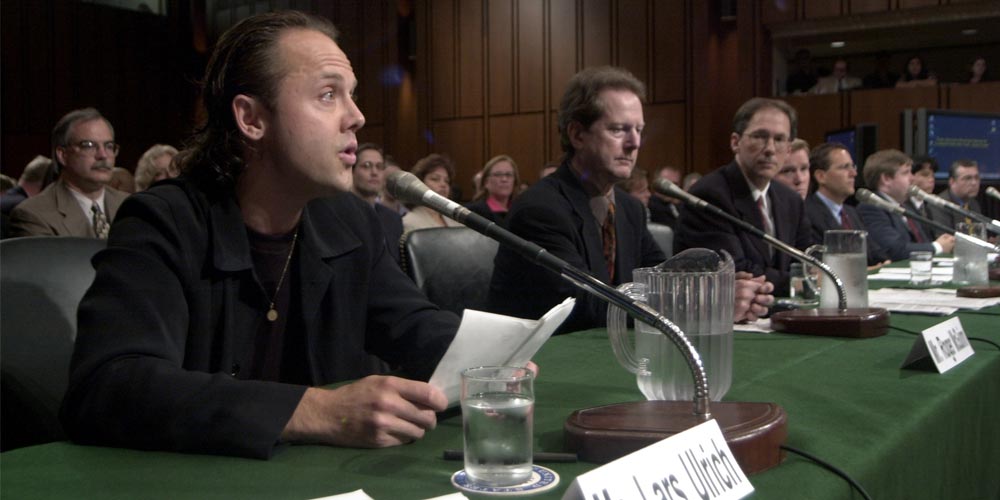The American heavy metal band Metallica accused Napster, Inc for copyright infringement, racketeering and unlawful use of digital audio interface on devices.
Founded by Shawn Fanning, Napster was a popular peer-to-peer file sharing that emphasized sharing of music, mainly in MP3 audio format. Metallica filed a lawsuit against the file sharing company, alleging that Napster was guilty.
The lawsuit was filed in the U.S. District Court for the Northern District of California.
The Metallica vs. Napster was the first highly publicized instance of an artist suing a peer-to-peer company. The case encouraged others to do the same, such as A&M Records, Inc. and other 18 large record companies.
Representing Metallica, was the band's drummer and co-founder Lars Ulrich. On July 2000, he read a testimony in front of the Senate Judiciary Committee accusing Napster of copyright infringement. In the testimony, he explained that Metallica discovered that a demo of the song "I Disappear", which was set to be released with the Mission: Impossible II soundtrack, was being played on the radio.
After tracing the source, Metallica was able to point it back to Napster's peer-to-peer file sharing network that distributed the demo song.
What made things worse, Metallica also found that its entire songs were also available to download for free.

For that matter, Metallica sought a minimum of $10 million in damages, at a rate of $100,000 per song that was illegally downloaded. To help it in the case, Metallica hired NetPD, an online consulting firm, to monitor the Napster service. NetPD compiled a list of 335,435 Napster users who were sharing the band's songs online in violation of copyright laws. The 60,000 page list was then delivered to Napster.
Metallica also demanded that all of their songs be banned from file sharing, and that the users responsible for sharing their music also be banned from the service.
This led to over Napster banning more than hundreds of thousands users. Napster was also forced to search through its entire database to remove every copyrighted songs by Metallica and some other musicians, including a number of record companies.
In a final settlement, Napster was required to block all songs being shared by any artists who didn't want their music to he shared. This led to the moment where Napster was forced to file for Chapter 7 and liquidate its assets.